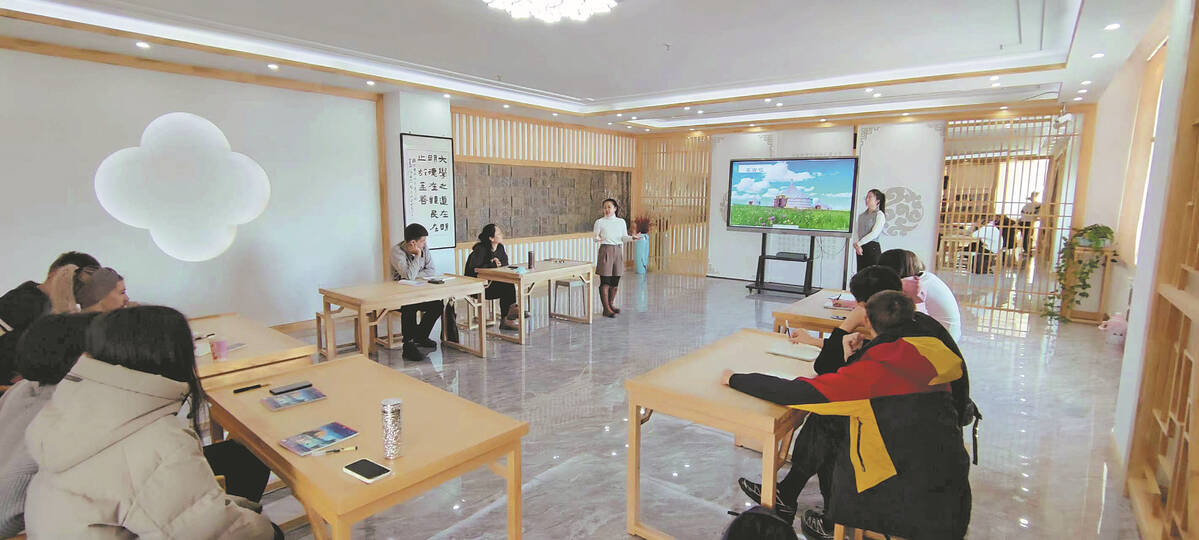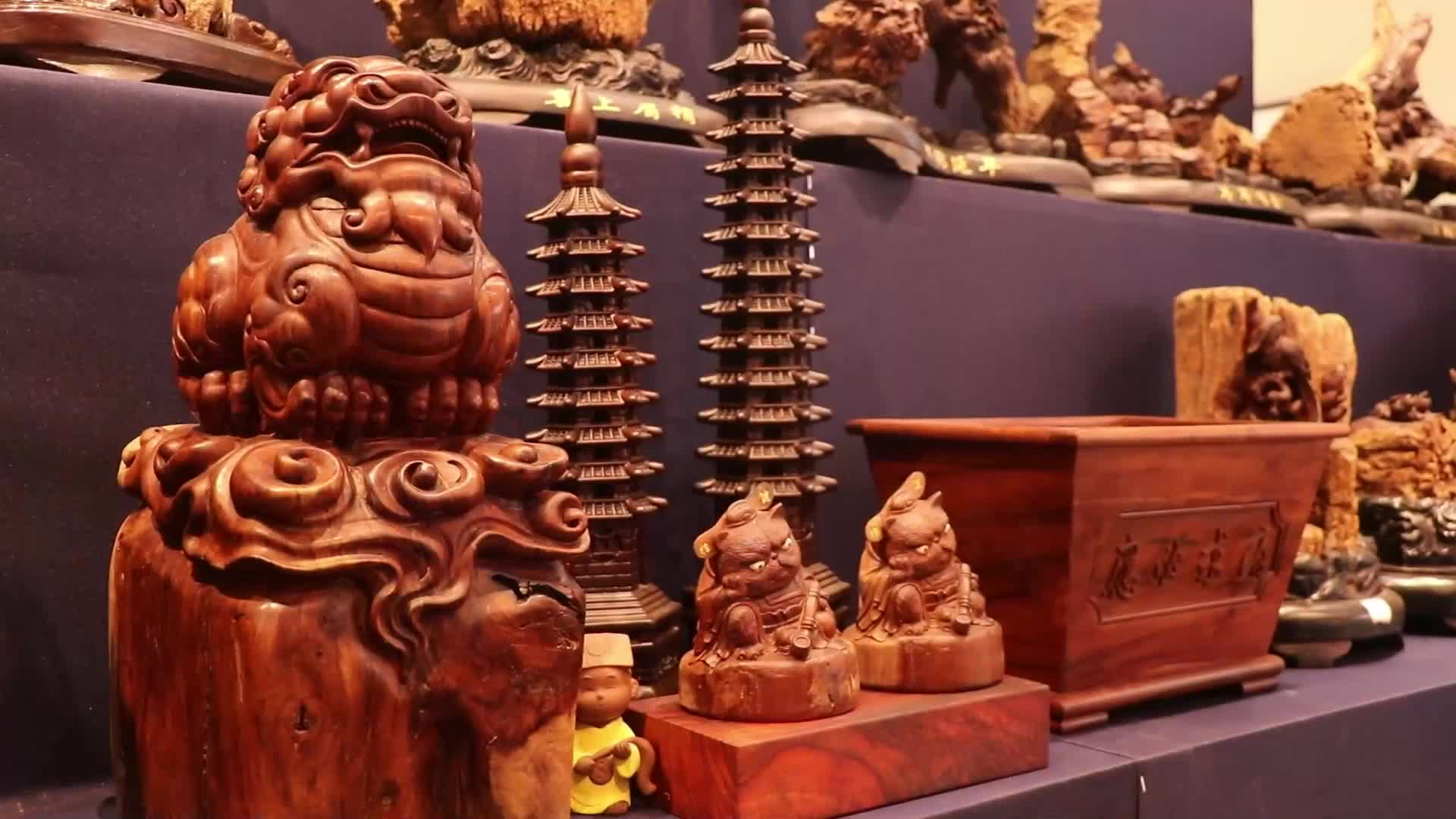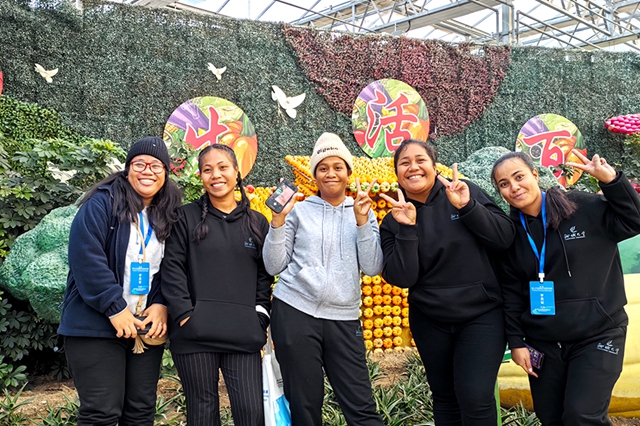
Russian students attend a Chinese culture course at Manzhouli Russian Vocational College in Manzhouli, Inner Mongolia autonomous region. [Photo provided to China Daily]
Training provides Chinese language skills, cultural knowledge
More than 10 students from Russia sat in a circle, holding brushes, looking focused and carefully writing on rice paper.
Occasionally, they paused, turned their heads and looked at the characters written by their classmates.
The foreign students then assessed their own efforts and exchanged their views and experiences on learning Chinese calligraphy, sometimes seeking guidance from the teacher.
This was the scene in a Chinese culture class at Manzhouli Russian Vocational College one afternoon late last month.
The class mainly demonstrates traditional Chinese culture, including calligraphy, opera and tea ceremonies, and is popular with international students.

Manzhouli is located at the border of China, Mongolia and Russia. With its geographical advantage, the vocational college has established long-term cooperative relationships with more than 30 universities in Russia and Mongolia, according to Li Chuanjin, a member of its Party committee.
Since 2010, the college has attracted more than 200 students from Russia, Li said.
To further increase communication and cooperation among countries involved in the Belt and Road Initiative, the college will expand enrollments to attract more students from Russia and Mongolia to study China's language and culture, he added.
Li Weimin, Party secretary of the college, said the BRI has created more opportunities for young people and also advanced development of other projects.
"The students who have received Chinese-language training at the college are now active at the forefront of economic and cultural exchanges between China, Russia and Mongolia and are playing a big part in the construction of the China-Russia-Mongolia Economic Corridor," he said.
With advances in the construction of the BRI and the economic corridor, government departments and multinational companies are demanding more high-quality professionals and skilled people with an international perspective.
The younger generation, therefore, has a strong desire to master foreign languages and other skills to enhance Sino-foreign exchanges and cooperation, Li Weimin said.
Quan Jing, director of the Chinese language department at the college, said the students get along well. "Chinese and Russian students are able to respect and understand each other's cultures and lifestyles, and strengthen mutual understanding through language learning, cultural exchanges and related learning activities," Quan said.
The college organizes many calligraphy exchange activities every year. The traditional Chinese solar term of Lidong, or the Beginning of Winter, is used to invite international students to experience making jiaozi, or dumplings. Parties to welcome international students are also held so Chinese and Russian students can get to know each other and build friendships, Quan said.
The growth of trade between China, Russia and Mongolia along with Manzhouli's proximity to Russia, means bilingual international students will have job opportunities in industries such as cross-border trade and e-commerce, and outbound tourism, he said.
Russian student Ilia Lukin, 20, said what attracts him to the college is its closeness to his hometown across the border. "My parents are there now, but they often come to see me at weekends," he said.
The content of the courses is rich and interesting, he said.
"The most difficult thing learning Chinese is pronunciation and characters, but our teacher explains them very clearly and interestingly, and the Chinese students in this college are very interesting and friendly," he said.
Lukin said he loves China and wanted to learn Chinese and make Chinese friends "so I came here".
"I think the study experiences in China will be very helpful for my future life and career. I want to become a businessman in China and I need to learn business Chinese," he added.
Balzhan Tsyrendashiev, 31, said during his three months in China, he realized speaking Chinese was not enough, and he needed to learn how to read and write the language.
"The most difficult thing for me is to remember Chinese characters. Each Chinese character is like a picture, which may have different meanings or different pronunciations. And I need to read more, write more and practice more to master Chinese," he said.
"I plan to study Eastern medicine in the future, and I want to directly learn from traditional Chinese medicine experts and TCM practitioners. Therefore, I need to be proficient in Chinese," he said.
Elizaveta Guruleva, 20, said she likes her Chinese teacher Miss Qu "very much" and she is a very interesting person.
"Qu has taught me a lot and I enjoy her classes," Guruleva said.




